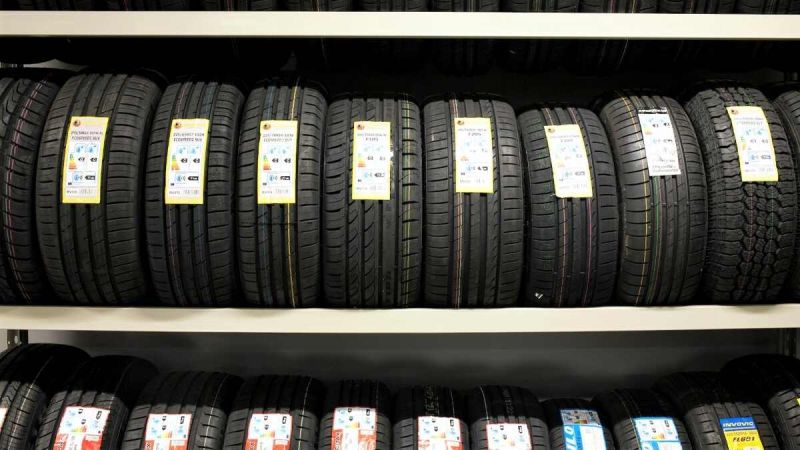According to a recent Consumer Reports newsletter to subscribers-only, tire prices like everything else automotive-related, have risen. For example, in 2020 customer surveys revealed that the average price consumers paid per tire was $167. In 2022, the average price rose to $194. In addition, tire-related services such as tire rotation, tire balancing, and used tire disposal have increased as well.
There’s Hope for Lowering Those Costs
The good news is that savvy shoppers know how to cut costs by not only making what they have last longer, but also where to do it and how to go about doing it when it’s time to finally get that new set of tires.
"Tire shoppers have many performance and price factors to consider when shopping for a replacement tire," says Ryan Pszczolkowski, CR’s tire program manager. "The key is to prepare for tire replacement before it is an urgent need by selecting the ideal replacement tire, choosing a good retailer, and then looking for rebates or discounts.”
Where That Hope Comes From
To help tire shoppers get the assistance they need to get the best tires possible for their car, CR analysts just released their insights from their customer survey data with recommendations from their tire experts on what you need to know and do when it comes to buying new tires for the least amount of money possible, but still drive away with the performance tire car owners want and need for their vehicles.
In addition, you will find some personal insight from the bylined author on additional tire-buying tips not covered by CR analysts that can make a difference in how much you pay and the service you will receive.
CR’s Summarized Tips
1. Tire Purchasing Drivers---CR analysts point out that when it comes to the driving factors of when car owners buy new tires, 55% buy them when the tires reach their normal wear and tear state; 18% buy replacement tires when problems such a flat, unusual noise, vibration or tread separation occur; and 17% buy replacement tires when premature/irregular wear occurs.
The importance of these numbers is that all cases of needing tire replacement can be delayed (making tires last longer) by:
- Being aware of the treadwear estimate ratings of your tires.
- Ensure proper tire inflation with checks at least monthly (but weekly is best) to help the tires to wear evenly.
- Rotating the tires every 5,000 to 7,000 miles to ensure even wear of all four tires.
2. Choosing Your New Tires---A focus on performance over price is what the survey data revealed that many savvy tire shoppers rely on when it comes to tires:
- Look at Overall Score ratings on tires from reputable sources such as Consumer Reports.
- Spending extra on a higher rated tire leads to longer-term savings (provided the tires are maintained properly).
- Surveys show that the Michelin brand is the most purchased brand among CR members.
3. Saving on Cost Tips---Tips that work on reducing your final tire replacement cost include:
- Shop around before the need arises for new tires. Know what tire type you will likely want (check your owner’s manual if you are not sure), make note of the pricing amongst tire dealers, and monitor it for any changes keeping an eye out for beginning of month deals and rebates.
- Negotiate with your preferred or recommended dealer with price-matching. CR data shows that 67% of those shoppers who do this wound up saving an average of $100 on a full set of tires.
- Look for perks. CR data shows that 80% of survey respondents got at least one perk included with the purchase. Of that 80% who received one more perks, 51% got free tire balancing, 49% got free tire rotation, 46% got free tire mounting, and 35% got free tire disposal.
4. Don’t Overlook the Benefits of Road Hazard Protection---Road hazard protection is another potential perk you can ask for and possibly get; however, even if it not’s offered as a perk you may still want to consider it if (1) your tires are expensive, (2) the tires have short sidewalls, (3) you have a history of flat tires due to your driving needs, and (4) peace of mind. However, a stronger reason/factor is that added road hazard protection costs roughly only $50 more and the fact that CR data shows that, “A little more than a quarter (26 percent) of road-hazard/service contract warranties had actually been used when members were surveyed.”
Personal Recommendations When It Comes to Tires
Aside from knowing what to look for and how to haggle for a better deal there are also some legitimate, useful tricks car owners use to keep their older tires such as tire shaving that some All-Wheel-Drive owners use to save money on their SUV tires.
And, regardless of where you find that deal, you will also want to consider whether you can really depend on the garage to do the tire installation correctly and not damage your brakes in the process---even if it is a simple tire change. Or, fall for this common brake repair scam that can occur in major-name tire centers. In other words, ask around at work and with your neighbors where they go and what they found.
But if I had to offer one final piece of advice that has worked for me over the years is that of making sure I had at least some sort of relationship with the tire dealer.
In other words, whenever you go browsing around during your “Before-I-Need-It” tire shopping, pay attention to the guy at the counter and get his name and business card. Talk tires. Look at that jar of collected road hazard tire-destroyers he has on the counter. Ask him how Covid affected his business---you are sure to get his attention with that one as many tire dealers lost employees when stimulus checks became a thing.
In other words, become that guy you want your tire dealer to be.
For additional articles related to your car’s tires, here are a few for your consideration:
- Electric Vehicle Summer Tire Recommendations
- Consumer Reports Analysts Recommend Against Buying These Tires
- Proper Tire Care & Maintenance Car Owners Need to Follow
Timothy Boyer is a Torque News automotive reporter based in Cincinnati. Experienced with early car restorations, he regularly restores older vehicles with engine modifications for improved performance. Follow Tim on Twitter at @TimBoyerWrites for daily news and topics related to new and used cars and trucks.
COMING UP NEXT: Kia Anti-Theft Software Update and How It Can Make Things Worse
Image Source: Unsplash
Set as google preferred source











